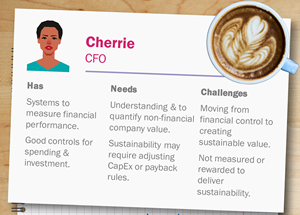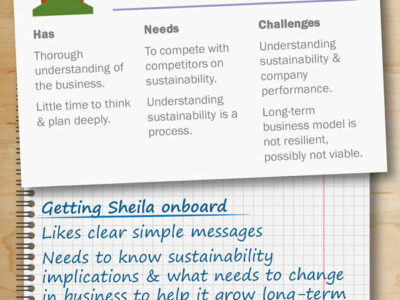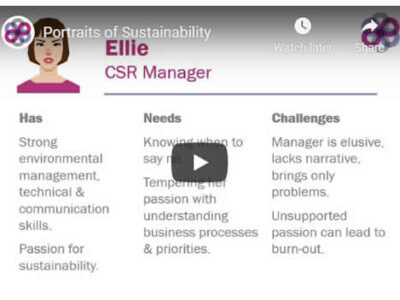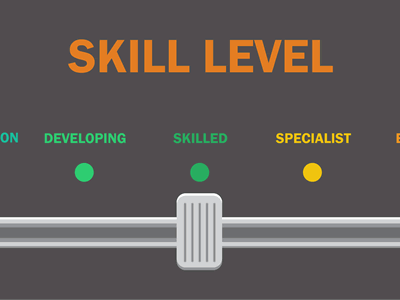Owning sustainability, why the many should help the few
Progress lies not in enhancing what is, but in advancing toward what will be.
Khalil Gibran
Sustainability/ESG managers have in many ways entered the mainstream. Their work is slowly entering established practice as most significant organisations have adopted some kind of sustainability strategy. However, there is still great variability in practice and sustainability managers are often hampered by resistance, apathy and misunderstanding.
With any relatively new approach or paradigm, you would expect (if the concept survives in the first place) uptake to follow a progression. Sustainability management (like any other business management concept) might be expected to follow a similar path to other business management concepts such as health & safety or quality management.
These can have a development path along the lines of:
Rejection/Resistance/Deflection > Compliance > Partial Adoption > Greater Adoption > Advocation > Transformation/Redefinition of Purpose/Evangelism
As the general acceptance and uptake of corporate sustainability/ESG has grown, we have seen a broad progression in adoption and maturity. However, most practice appears stuck in the middle, somewhere between compliance and greater adoption. There are still very few examples of companies taking a leading position in sustainability.
There are many examples of excellence in specific areas, but few companies are pursuing a transformative agenda at a significant scale.
Performance is stuck in the middle
What does getting stuck in the middle look like at an organisation level?
SYMPTOMS
- Little or no analysis of strategic context or apparent recognition that social and environmental issues will affect the business
- Greater focus upon charitable activities and staff volunteering than issues related to core business activities
- Little evidence of the use of standards or strategic step-by-step approaches to sustainability management
- Long-term ambition and targets are not clearly expressed – or are not comprehensive
- Focus upon relevant but partial elements – e.g. carbon performance
- Focus on compliance rather than opportunity, risk management and value creation
- None or few dedicated sustainability staff or relevant resources and structures for delivery
- Sustainability function is in/reports to a non-strategic part of the organisation
- Few sustainability commitments are made publicly, sustainability communications lack strong rationale and/or are centred around isolated and relatively unimportant messages and activities.
Sustainability managers – progress stalled?
Why does progression towards best practice and excellence appear to stall in the bulk of organisations? Generally, because sustainability management requires changes in attitude and practice and sustainability managers/professionals, therefore, face multiple challenges in driving adoption and performance across the organisation.
We find that practitioners still struggle with the overall challenge that sustainability or corporate responsibility is often seen as a separate or parallel priority to business as usual. Additionally, other challenges are more individual in nature.
ORGANISATIONAL CAUSES
- Lack of business case – sustainability managers may struggle with promoting sustainability in terms the wider business recognises. Understanding sustainability in terms of potential value foregone, risks managed, or efficiencies achieved can assist with the business case.
- Inappropriate focus – where sustainability responses concentrate on controlling operational risks (within the company) rather than on larger social and environmental issues and opportunities in the value chain, or where the focus is upon issues which are minor rather than material (significant) company impacts & risks.
- Strategy and planning – where strategy is poorly developed or too tactical, or where there has been a lack of understanding that strategy implementation is just as important, and more difficult, than strategy development!
- Perceived helplessness – where huge issues (such as climate change, biodiversity loss or the delivery of the UN Sustainable Development Goals) are much bigger than the company they affect and it has limited ability to make a significant contribution to solving it.
- Integration – sustainability management is frequently not integrated into core business strategy, planning and implementation.
- Differing time scales – there is often a mismatch between shorter-term business planning and investment cycles and the longer terms often needed for sustainability programmes.
- Leadership and management:
- Lack of support, training or mandate — little or no senior support for sustainability managers/practitioners a day-to-day, or a lack of understanding achieving sustainable change requires responsibility, authority and input to strategy.
- Ineffective leadership – where there are ambitious promises but inadequate follow-up.
- Middle management blockages – CEOs/Chairs may be on board with sustainability, but Business Unit Heads or other Senior Managers don’t ‘get’ sustainability or have little motivation to support it (e.g. their bonuses do not recognise or reflect progress in sustainability management).
INDIVIDUALLY RELATED CAUSES
- Control, influence and concern within organisations – sustainability managers are often tasked to achieve change without the ability to direct or mandate it. Their ability to be successful frequently lies in developing their skills and capability to influence other people and parts of the business.
- Professional skills and development – practitioners can often lack professional development plans, suitable training budgets or career development pathways.
From individual professionals to organisational capacity
So why does sustainability often struggle for influence in many organisations? It’s clearly a strategic commitment challenge – but underneath that, it’s rooted not only in a conceptual misperception of value but also in a range of other institutional challenges, including:
- fear of change
- failure to recognise the potential impacts of inaction
- a lack of institutional knowledge, skills and capacity.
The sustainability profession needs to work on all these challenges, building capacity and capability. But perhaps more importantly, sustainability management needs to be owned by the organisation, not by the individual(s) with sustainability manager in their job titles.
For sustainability managers, a focus on creating and driving a culture of ownership and buy-in across their organisations is vital. Sustainability will thrive only when everyone has a role in delivering against sustainable strategy.
DISCOVER MORE | Sustainable Business Skills
Communicating Sustainability– how audiences value different language
To drive change in their organisations, sustainability professionals have to be effective influencers as well as content experts.
However, navigating how to develop the right messages for the right audiences can present a range of challenges, especially when sustainability can be complex, nuanced, …
Engaging leadership in sustainability – CFO
Engaging leadership in sustainability is vital – even in a large organisation with dedicated sustainability specialists. To ensure that sustainability becomes and remains a strategic priority, sustainability professionals need to work hard to get the organisation on board. You need to start with the …
Sustainability people that matter – engaging the CEO
To make sustainability a strategic priority, sustainability professionals need to work hard to get the organisation on board. They need to start with the positions, roles, places and people that matter. Here is Sheila, the CEO.
Sustainability Specialists
Why is it sustainability specialists can find their jobs both frustrating and lonely? It’s usually a wider business problem.
There are many reasons for this, some more visible than others. Based on real conversations, I look one of the main issues that often
underlies the frustration.
Portraits of sustainability – where are sustainability skills gaps?
Every organisation has sustainability skills gaps, but do you understand where they are and the problems they are causing?
Ensuring your organisation identifies and addresses skills gaps is crucial – it’s as important as getting your strategy right.
Sustainability skills for everyone… not just the professionals
If your company has a sustainability ambition it also has a need for sustainability skills – but who needs them and how do you take a planned approach?
So you want a career in sustainability?
Sustainability is vital – but also exciting – but what are the key things to bear in mind when thinking of a career in sustainability?









 Mind the (massive) gender pay gap!
Mind the (massive) gender pay gap!
Leave a Reply